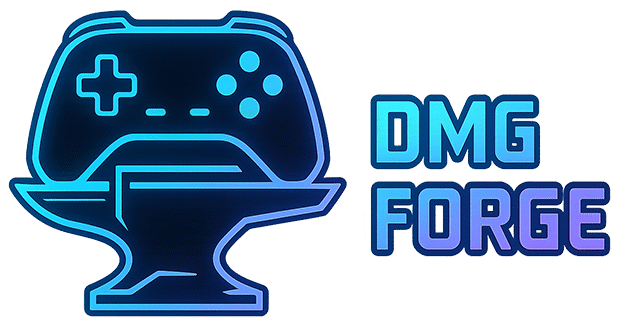Solo game development can feel like a wild ride, especially when you’re juggling coding, art, music, testing, and, oh yeah, trying to have a life outside your computer screen. Whether you’re aiming to get your indie title noticed or just squeezing in game dev time around work and gaming, getting a grip on your schedule is really important. I’ve gathered a bunch of strategies and thoughts that help not just with staying sane but also with actually finishing projects.

Starting Solo: What Makes Indie Game Development Click?
Launching into solo game development is both exciting and overwhelming. When you’re handling everything, the responsibilities stretch way past just making something fun to play. Game development as a oneperson team means setting up project plans, prioritizing features, testing for bugs, marketing, and keeping yourself motivated. I’ve found a good chunk of success comes from breaking big goals into smaller, trackable ones. Setting up a simple project roadmap (even just a sticky note system on your monitor) keeps the entire vision in sight, so you don’t get lost in details.
Solo development has exploded recently, thanks in part to userfriendly engines like Unity and GameMaker. There’s a huge community of solo developers sharing their progress, ideas, and helpful resources. Sites like itch.io and TIGSource offer plenty of realworld advice and camaraderie if you start feeling the isolation that sometimes comes with working alone.
Winning at Time Management as a Gamer and Game Dev
Trying to build your own game while also wanting to play games can eat up your hours fast. Over the years, I’ve realized it’s way too easy to lose whole evenings to “just one more run.” Managing this means setting up real boundaries, like choosing certain days for development, and others for gaming, or even using a timer to split chunks of your night. Mixing in short, scheduled breaks actually keeps my mind fresher than grinding nonstop, helping ideas flow better.
Here are a few habits that stick out for solo developers balancing both sides:
- Use simple tools: A paper calendar, Trello board, or just your phone’s reminders work great for blocking time.
- Set realistic daily goals: One bug fix, one new animation, or finishing a tutorial.
- Block distractions: Turn off notifications or use “focus” modes during dev time.
If you slip up and burn a night gaming, don’t worry. Tomorrow is another shot. Staying flexible helps avoid burnout and frustration.
Typical Game Dev Hours: What’s Normal for Solo Workers?
The hours solo developers clock each day depend a lot on personal schedules and project deadlines. When I talk to solo devs, I hear all sorts of routines; some do one hour after their regular job, while others run it more like a fulltime day. On average, most parttime solo developers put in around 2-4 hours a day on their project. If you’re going at it fulltime, 6-8 focused hours can be manageable as long as you’re not skipping breaks.
Pushing longer can be tempting, especially when you’re in a creative groove, but there’s solid evidence out there, like studies shared on Gamasutra, that regular, balanced hours tend to lead to games getting finished more often. Looking after your health, keeping snacks and water nearby, and getting up to stretch can make those hours a lot more effective.
Breaking Down My Time Management Playbook
- Set Project Priorities: List your features. Pick your top three for the week.
- Chunk Your Tasks: Tackling one thing at a time keeps momentum going. I like using 25minute work sprints (the Pomodoro method) with 5minute breaks.
- Schedule Downtime: Mark out blocks for gaming, exercise, or just zoning out. Your brain will thank you, and ideas often surface when you’re away from the screen.
- Review Progress Weekly: Sunday evenings work well for this. Celebrate wins, adjust goals, and keep your project on track.
This cycle makes it easier to balance ambition with real life, and it stops me from feeling buried when tasks start to pile up.
Common Roadblocks for Solo Game Dev Time Management
- Scope Creep: Adding new features can be really tempting. Try to stick to the original plan until the core is finished.
- Perfectionism: Not every sprite or mechanic has to be flawless. Polishing can come after the core game works.
- Feeling Overwhelmed: When the list grows too long, focusing on the next actionable item can cut through that paralysis.
- Loneliness: Solo work can get lonely. Pop into developer Discords or forums for motivation and advice.
Scope Creep Solutions
When you’re flying solo, every new idea during development can feel super important. I keep a “future ideas” list, so those thoughts don’t distract or derail the current project. This way, you get back some peace of mind without losing cool future improvements.
Dealing with Perfectionism
Done really is better than perfect for small teams. I picked this up after spending too long tweaking graphics when nobody noticed the tiny changes. Think about uploading early versions to friends for feedback. Honest responses can save tons of time chasing the wrong details.
Building Motivation and Community
Analog or digital, finding buddies who “get it” makes a huge difference. Accountability (especially from other indie devs) keeps momentum up. Even tweeting progress screenshots tags a sense of commitment to the project. Another way to give a boost to your motivation is by joining regular game jams or online meetups. These events often grant new perspectives and challenges, plus an energizing feeling of progress. Forming small online groups for regular check-ins can also create lasting support and accountability, especially during stretches when solo work feels tough. If you ever feel stuck, just jump into a dev chat or forum and ask for advice; most folks there have felt the same frustrations and are eager to help.
Can You Start Game Dev at 30 (Or Later)?
This question pops up more than you might think; I see it a lot on Reddit and indie forums. The great news is that age is honestly not a dealbreaker for learning game development. Plenty of solo devs get started in their thirties, forties, or even later. Your life experience can actually help with planning, prioritizing, and bringing a fresh viewpoint to your games. Plus, modern engines have tons of free tutorials, making the entry barrier way lower than it used to be.
If you can carve out a few focused hours a week and stay curious, there’s nothing stopping you from launching your first project, no matter your age. I started picking up new engines well into adulthood and found that steady, patient progress pays off more than any particular starting point. Don’t let worries about age slow you down—this field is wide open to anyone willing to put in the time and curiosity to learn. If you’ve played plenty of games and paid attention to what makes them fun, you already have a unique perspective that can set your projects apart.
Is Game Development Worth It in 2025?
With platforms like Steam, itch.io, and even mobile app stores widening reach, solo game dev is a real path worth checking out in 2025. Sure, competition is tougher than it was ten years ago, but so are the resources, support networks, and learnas-you-go opportunities. If you’re motivated to create, learn, and share, the satisfaction of seeing your game played by others simply can’t be beat. Financial success might not come overnight (or ever), but the skills, personal growth, and community you join all add plenty of value.
New tech trends—like AI-assisted tools, easy asset marketplaces, and collaborative plug-and-play assets—make things faster for solo devs than ever before. Keeping up with these trends boosts your efficiency and lets you focus more on the creative side. Watching YouTube tutorials, following devlogs, and participating in social media groups all help you tap into new ideas and stay motivated to keep going. Game development in 2025 isn’t just about the coding—it’s also about connecting with players, learning on the fly, and celebrating the tiny wins each step of the way.
Frequently Asked Questions
Here are some questions I get all the time or see from new solo developers:
Question: How can I succeed as an indie game developer?
Answer: Focus on finishing small projects first, keep learning, and stay active in online dev communities. Tracking progress helps keep projects on course, and community supports accountability.
Question: Do you have to sacrifice gaming to make games?
Answer: Not at all. Scheduled gaming breaks can actually recharge your mind. The trick is balance, marking time for both so neither one takes over completely.
Question: Can a solo dev really make a finished game alone?
Answer: Absolutely, with the right systems in place. Learning to prioritize and simplify keeps things moving forward.
Question: What’s the main thing to avoid as a solo developer?
Answer: Trying to make your first project perfect or adding too many features late in the process. Simple, finished games open the door for bigger projects later.
Bringing It All Together
Managing your time as a solo team isn’t just about squeezing more hours into the day. It’s about setting up habits that work for your life, carving out regular progress, and accepting that things won’t always go as planned. With small, steady steps, and a willingness to enjoy the process as much as the product, you’ll find solo dev life a lot more rewarding, whether you’re just starting out or juggling projects in your thirties (or beyond). And remember, the journey is just as much about personal growth and learning as it is about shipping your game to the world. So take your time, find your rhythm, and keep having fun along the way.
